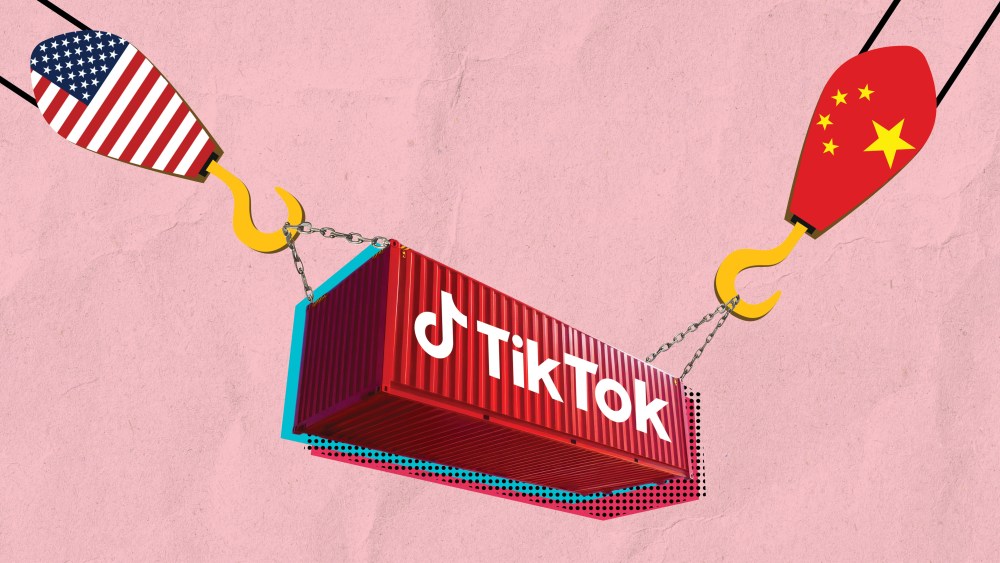The Uncertain Future of TikTok Amid U.S.-China Tensions
In recent years, TikTok has blossomed into a cultural sensation alongside an impressive e-commerce arm known as TikTok Shop. However, the future of this platform hangs in the balance as it’s become embroiled in the fraught trade tensions between the United States and China. The app, owned by Chinese company ByteDance, faces increasing pressure from the U.S. government to transfer its operations to a non-Chinese entity, which raises questions about its continuation and market operations in the country. This situation reflects broader geopolitical dynamics as tariffs, economic strategies, and national security concerns collectively complicate the landscape in which TikTok operates.
Recently, U.S. President Donald Trump imposed steep tariffs, raising rates on some Chinese goods by up to an eye-watering 245 percent—the highest of any country affected by these tariffs. China, refusing to be quiet amid this escalating conflict, retaliated with its own tariffs imposed on U.S. imports, further intensifying hostilities. These developments not only affect tangible products across multiple industries, including the beauty sector, but they also pose existential questions for TikTok. The platform is increasingly viewed as a bargaining chip in the volatile game of international trade politics, caught at the intersection of economic strategies and an uncertain future.
As the ongoing tariff conflict reverberates through various sectors, beauty brands that significantly rely on Chinese manufacturing are particularly alarmed. The beauty industry has witnessed TikTok become a vital platform due to its ability to create viral trends and engage consumers more than ever before. The e-commerce component of TikTok, which was rolled out in 2023, has seen robust growth, with beauty sales soaring by over 53% year-on-year. In the face of uncertainty, the beauty market has managed to maintain its operations—the TikTok Shop has become a primary driver for impact shopping, reshaping consumer behavior toward impulsivity and eventually fostering deeper considerations on more expensive items.
Despite the alarm bells ringing over TikTok’s potential shutdown, the platform remains busy. Even the latest estimates reveal a sharp rise in beauty sales through TikTok Shop, with many brands reporting impressive earnings. Notable mentions include the Korean beauty brand Medicube, which has made waves with its high-priced products, marking a fundamental shift toward consumer willingness to make higher-value purchases on the platform. As purchasing patterns evolve, the ability of TikTok to harness and engage consumers effectively signals its ongoing relevance, at least while it still remains operational in the U.S.
Going forward, there’s speculation around how TikTok’s experience might change under a new owner, if an acquisition takes place. Some experts urge that core functionalities and the unique appeal of the platform should remain intact to avoid alienating existing users. Key players interested in acquiring TikTok, such as Microsoft, specifically cite the need for maintaining TikTok’s algorithm and user engagement mechanisms, which could be enriched with data integration from Microsoft’s ventures. This potential enhancement reflects a future where beauty products could be marketed through evolving search dynamics, especially given that many users now view TikTok as a powerful tool for discovering product recommendations.
The acquisition landscape is filled with possibilities, though the bar is set high amid regulatory concerns, especially regarding tech giants like Amazon. If Amazon manages to acquire TikTok, it could drastically shift the dynamics of brand engagement, driving sales conversion through rich consumer data analysis. Such a partnership could provide brands an opportunity to reach consumers more effectively, but skepticism looms, especially from luxury brands wary of losing their unique identity amidst the mixing of platforms. In essence, acquiring TikTok entails balancing the existing charm of the platform with the need for enhanced reliability and a more structured marketplace.
As the ever-present backdrop of U.S.-China relations continues to evolve, the potential for TikTok’s sale remains shrouded in doubt. Experts believe ongoing discussions will likely lead to continual extensions of the ban deadlines unless a significant turn occurs involving ByteDance and its decision-making regarding U.S. operations. With this uncertain terrain, the future of TikTok—and by extension, its influence on the beauty industry—remains a captivating yet precarious narrative, winning over consumers while sitting at the mercy of international economic winds.

